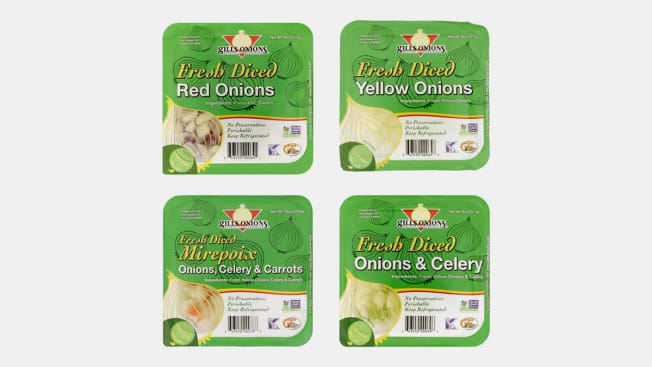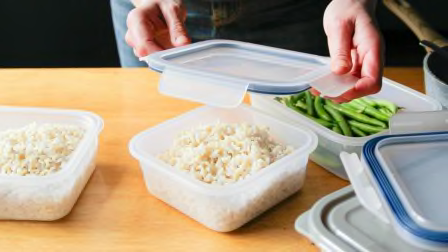Recalled Fresh Diced Onion Products From Gills Onions Have Been Linked to a Salmonella Outbreak
People in 22 states have become ill

Gills Onions fresh diced onion products have been linked to an outbreak of salmonella in 22 states, according to the Centers for Disease Control and Prevention. The company has issued a recall, the Food and Drug Administration announced on October 24, because the onions may be contaminated with the bacteria.
Seventy-three people have been sickened; 15 were hospitalized, according to the CDC.
The products that are recalled are diced yellow onions (3-pound bags and 8-ounce cups), diced red onions (8-ounce cups), mirepoix—diced onions, carrots, and celery—(10-ounce cups), and diced celery and onions (8-ounce cups). These were sold in Smart & Final, Bashas’ Markets, Chef’Store, and Stater Bros. stores in Arizona, California, Idaho, Montana, Oregon, and Washington. The onion-containing products were also shipped to restaurants and institutions, such as hospitals and nursing homes, across the U.S. and in Canada.
Risks of Salmonella
Most people sickened with salmonella experience symptoms 6 hours to up to six days after eating contaminated food. The most common symptoms are diarrhea, fever, and stomach cramps. The illness usually resolves in a few days without any treatment.
But for some people such as children under the age of 5, those over the age of 65, or with a weakened immune system, a salmonella infection can be especially serious and even fatal. The bacteria can sometimes spread to the bloodstream and cause a more severe illness, such as arterial infection, endocarditis, and arthritis.
See a doctor as soon as possible if you experience any of these symptoms: diarrhea and a 102° F or higher fever; bloody diarrhea; diarrhea that doesn’t improve for several days; you can’t keep liquids down; or you’re severely dehydrated (you aren’t peeing much, have a dry mouth, or feel dizzy upon standing).




















